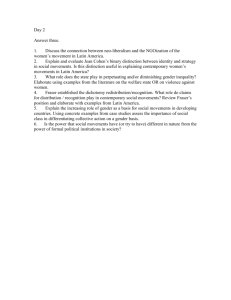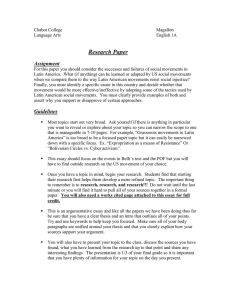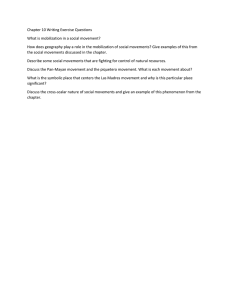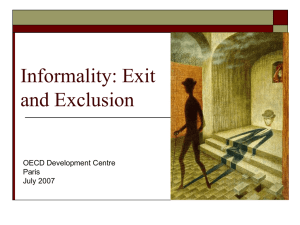QUESTIONS (CHOOSE 3) 1.
advertisement
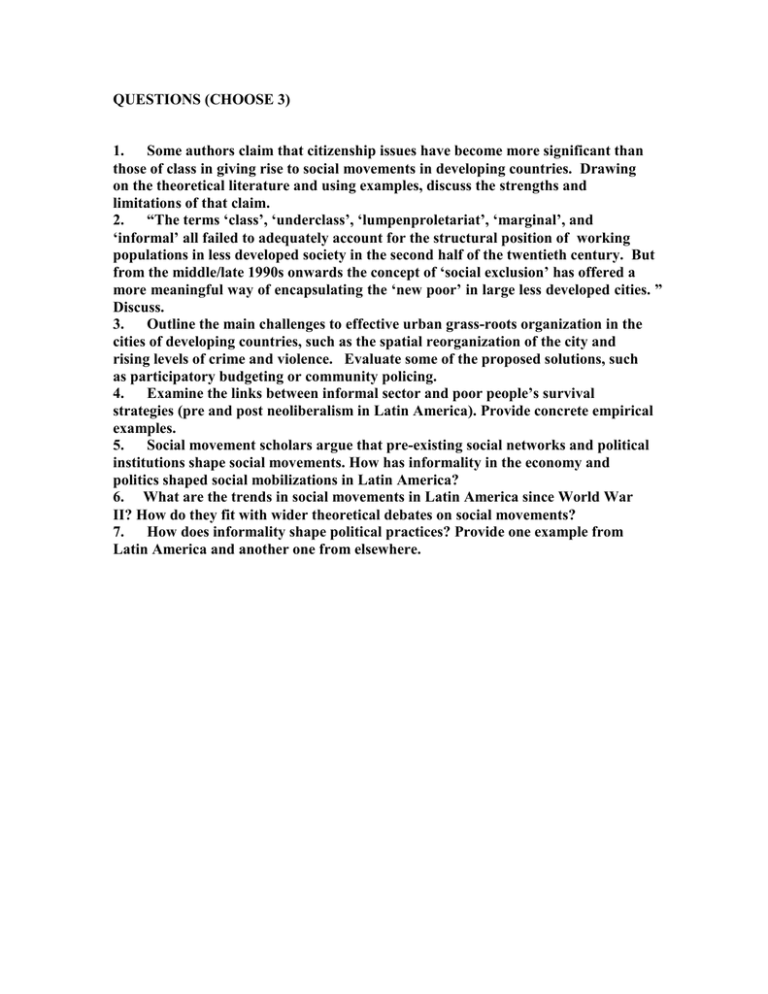
QUESTIONS (CHOOSE 3) 1. Some authors claim that citizenship issues have become more significant than those of class in giving rise to social movements in developing countries. Drawing on the theoretical literature and using examples, discuss the strengths and limitations of that claim. 2. “The terms ‘class’, ‘underclass’, ‘lumpenproletariat’, ‘marginal’, and ‘informal’ all failed to adequately account for the structural position of working populations in less developed society in the second half of the twentieth century. But from the middle/late 1990s onwards the concept of ‘social exclusion’ has offered a more meaningful way of encapsulating the ‘new poor’ in large less developed cities. ” Discuss. 3. Outline the main challenges to effective urban grass-roots organization in the cities of developing countries, such as the spatial reorganization of the city and rising levels of crime and violence. Evaluate some of the proposed solutions, such as participatory budgeting or community policing. 4. Examine the links between informal sector and poor people’s survival strategies (pre and post neoliberalism in Latin America). Provide concrete empirical examples. 5. Social movement scholars argue that pre-existing social networks and political institutions shape social movements. How has informality in the economy and politics shaped social mobilizations in Latin America? 6. What are the trends in social movements in Latin America since World War II? How do they fit with wider theoretical debates on social movements? 7. How does informality shape political practices? Provide one example from Latin America and another one from elsewhere.
